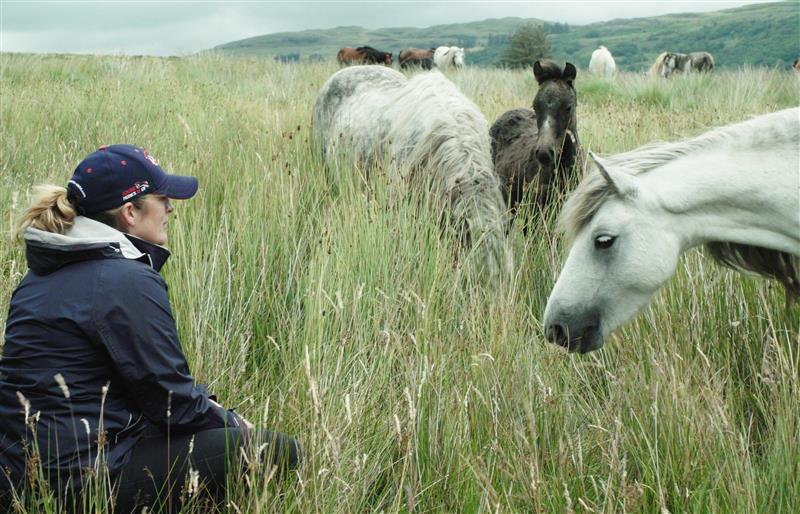If you are struggling with your horse’s behaviour or would like to learn more about horse behaviour, then you can contact a behaviour professional such as an equine behaviourist or ethologist (see below for definitions). If you suspect your horse’s behaviour is pain or discomfort related, then contact your vet.
Equine Behaviourists: There a range of equine behaviour practitioners available. Some will have informal qualifications, some will have formal qualifications, and some will be practicing based on experience. It is important that whoever you use for behaviour support base their practice on equine learning theory, has experience in the area in which you need help and is insured for public liability as a minimum. Do your research to ensure you find the right practitioner for both you and your horse. There are a range of qualifications and methods used by behaviourists. If you feel that the proposed method compromises your horse’s welfare, or ability to learn, source a different behaviourist.
There are multiple registers available to help you find an equine behaviour consultant. For each register, check the required level of qualification of practitioners able to join, their continual professional development requirements/opportunities, and their concerns and complaints procedures.
You can begin your search for an equine behaviourist near you using the following links:
Animal behaviour and training council (ABTC)
Certified Clinical Animal Behaviourist Certification Ltd. (CCAB)
Equine Ethologist: Ethology is the scientific study of animal behaviour. Ethologists look at various aspects of behaviour, such as evolutionary background, species, genetics, cognition, emotions, environment, and life history. It’s a very wide field, and many ethologists specialize in a particular area or species, such as equines. Some ethologists combine their academic education and research with practical work as behavioural consultants, and some may also be registered with one of the animal behaviourist registers (see above). When researching equine ethologists, consider academic qualifications such as a degree or research published in a peer-reviewed journal.
Your vet: If you or an equine behaviour professional suspect that your horse’s behaviour is due to pain or discomfort, please contact your vet for a pain and/or lameness assessment. You can search the Royal College of Veterinary Surgeons vet practice register to find an equine veterinary practice local to you.
Popular advice in Behaviour

Separation anxiety: training your horse to be on their own
Not sure how to prepare your horse to be left on their own or have a horse with separation anxiety? Check out our top tips.

Introducing a new horse to a herd
Bringing a new horse home or looking to change arrangements within an existing herd? Check out some of the possible approaches.
Other advice categories
All webinar categories:
Call our Advice Line
+44 (0)1953 497 238Not found the advice or answer you were looking for here? Then our Advice Line is available during office hours, or you can email us on [email protected] to let us know what topics you were looking for.


